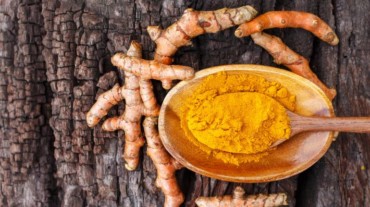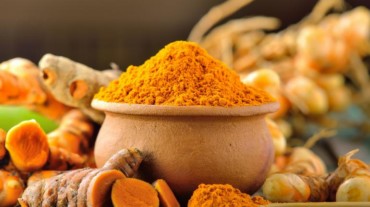
There is hardly anybody out there who by now doesn’t know the myriad health benefits of turmeric. While part of this education comes from the latest research on curcumin, the starring ingredient in turmeric; for most Indians, it is our mothers’ belief in the healing power of haldi that ignites our faith.
This faith, it seems, has also ensnared the scientific community looking into coronavirus infections, because a new study claims curcumin can help eliminate certain viruses.
As per a study published in the Journal of General Virology, curcumin can prevent an alpha-group coronavirus that infects pigs called Transmissible gastroenteritis virus (TGEV) – from infecting cells. Upon increased consumption, this compound is also said to kill virus particles.

What is TGEV?
TGEV causes transmissible gastroenteritis in piglets, which makes itself known with diarrhoea, severe dehydration, and death. Highly infectious and invariably fatal, TGEV affects piglets younger than two weeks, thus posing a major threat to the global swine industry. Currently, there have been no approved treatments for alpha-coronaviruses and although there is a vaccine for TGEV, it does not aid in curtailing the spread of the virus.
How can turmeric tame this coronavirus?
The research team, in order to determine the potential antiviral properties of curcumin, treated experimental cells with various concentrations of the compound, before attempting to infect them with TGEV. They observed that with higher concentrations of curcumin, the number of virus particles in the cell culture dropped.

The research suggests that curcumin affects TGEV by directly killing the virus before it infects the cell. It also integrates with the viral envelope to ‘inactivate’ the virus, and alters the metabolism of cells to prevent viral entry.
Lead author of the study and researcher at the Wuhan Institute of Bioengineering, Dr Lilan Xie says,
Curcumin has a significant inhibitory effect on TGEV adsorption step and a certain direct inactivation effect, suggesting that curcumin has great potential in the prevention of TGEV infection.
Turmeric can also help with other viral diseases
Curcumin seems to inhibit the replication of some types of virus, that includes dengue virus, hepatitis B, and THE Zika virus. It also has a number of significant biological effects, including antitumor, anti-inflammatory and antibacterial activities.
According to Dr Xie, they chose Curcumin for this research due to its low side effects. He said: “There are great difficulties in the prevention and control of viral diseases, especially when there are no effective vaccines. Traditional Chinese medicine and its active ingredients, are ideal screening libraries for antiviral drugs because of their advantages, such as convenient acquisition and low side effects.”
Select Topics of your interest and let us customize your feed.
PERSONALISE NOWThe researchers now hope to continue their research in vivo, using an animal model to assess whether the inhibiting properties of curcumin would be seen in a more complex system. “Further studies will be required, to evaluate the inhibitory effect in vivo and explore the potential mechanisms of curcumin against TGEV, which will lay a foundation for the comprehensive understanding of the antiviral mechanisms and application of curcumin,” Dr Xie added.
(With inputs from ANI)